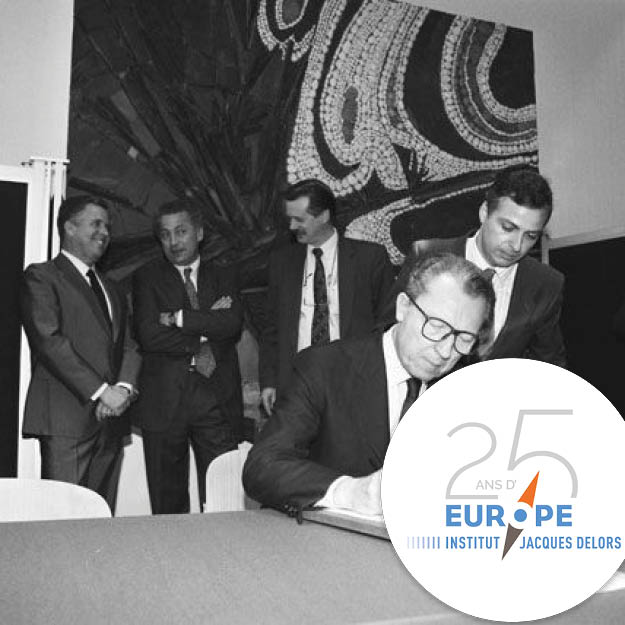La formation continue selon Jacques Delors, catalyseur d’une société en mutation

Alors que depuis deux ans, les dirigeants de l’UE s’efforcent de limiter l’impact socio-économique de la crise sanitaire – grâce notamment à la mise en place de régimes de chômage partiel pour protéger les travailleurs et les emplois – les derniers chiffres disponibles semblent indiquer que nous sommes bien engagés sur la voie de la relance : le taux de chômage dans l’UE est à son niveau le plus bas depuis 2008[1] et le taux de croissance devrait dépasser les 4 % en 2021 et 2022, selon les prévisions de la Commission européenne[2]. Néanmoins, au-delà de ses effets à court-terme, la crise du COVID-19 est susceptible d’avoir un impact durable sur l’emploi dans l’UE. En effet, la pandémie, mais aussi la stratégie de relance européenne, sont en train d’accélérer les transitions numérique et écologique, et avec elles les évolutions rapides et profondes déjà à l’œuvre sur le marché du travail. En effet, certains emplois seront détruits, une grande partie sera considérablement transformée, tandis que de nombreux autres seront créés. Face à cela, il y aura un besoin croissant de reconversions ou de mises à niveau des compétences des individus afin qu’ils puissent trouver ou conserver leur emploi, et qu’ils répondent en même temps aux nouveaux besoins des entreprises et du marché du travail. Toutefois, aujourd’hui, seuls 38 % des adultes européens participent chaque année à une formation[3].
Même si la pandémie a mis un coup de projecteur sur le défi des compétences, celui-ci est loin d’être une nouveauté. Dès les années 1960, Jacques Delors appelait à un droit pour l’éducation tout au long de la vie. Bien plus récemment, au niveau européen, le Socle européen des droits sociaux proclamé en 2017 revendique dans son tout premier principe le droit pour toute personne à « une éducation, une formation et un apprentissage tout au long de la vie inclusifs et de qualité, afin de maintenir ou d’acquérir des compétences lui permettant de participer pleinement à la société et de gérer avec succès les transitions sur le marché du travail »[4].
A l’occasion du 50ème anniversaire de la loi Delors sur la formation professionnelle en France, nous revenons sur l’action et la pensée de Jacques Delors sur l’éducation tout au long de la vie. Cette démarche permettra notamment de nourrir les débats et réflexions actuelles sur la construction d’une Europe des compétences, alors que la Commission poursuit la mise en œuvre de la stratégie européenne en matière de compétences, avec notamment des propositions à venir sur les comptes de formation individuels, les micro-certificats, ou encore le développement des compétences numériques.
Ce papier retracera d’abord le parcours de Jacques Delors sous le prisme de son action en faveur de l’éducation tout au long de la vie ; nous identifierons ensuite les principales motivations derrière cet engagement, qui, nous le verrons, n’ont en rien perdu de leur pertinence aujourd’hui ; dans une troisième partie, nous dégagerons les grandes idées qui ont façonné, jalonné et structuré sa vision holistique de l’éducation tout au long de la vie ; enfin, nous réfléchirons au rôle des différents acteurs de la formation permanente pour mettre en œuvre ces idées.
[1] Eurostat, Enquête sur les forces de travail dans l’UE, Chômage par sexe et âge données annuelles et données mensuelles.
[2] Commission européenne (2021), Prévisions économiques de l’été 2021, 7 juillet
[3] Commission européenne (2020), Stratégie européenne en matière de compétences en faveur de la compétitivité durable, de l’équité sociale et de la résilience, 1er juillet.
[4] Commission européenne (2017), Socle européen des droits sociaux, p. 11.





